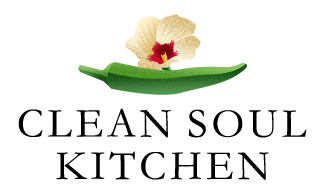Gimme (Less) Sugar

I don’t get to choose what to watch on TV very often. We have one main TV that everyone in the family shares, and between the kids watching their favorite shows on repeat and my husbands’ sports, I often entertain myself with a book or some housekeeping task. That is, except on Wednesday nights. For the past several years I've been giving American Horror Story (AHS) my time, but, this year I stay up later so I can watch both AHS and OWN’s Queen Sugar.
Let me just say that I have never been so caught up in the lives of fictional characters since A Different World or 21 Jump Street. I mean, AHS is good entertainment (except when I’m mad because I don’t know where the story is going), the People v. OJ was riveting, and Empire is WOW, but I just can’t relate to the characters that much. There is something about the Bordelon siblings that is familiar – not in a literal sense, but what happens to and with them matters to me on a personal level.
The setting for Queen Sugar is southern Louisiana. Three siblings come back home after their father’s death and learn that he has left them his sugar plantation. They decide to take over managing the struggling plantation while simultaneously dealing with personal challenges and crises. It’s better than good television.
From a historical perspective, the fictitious Bordelon plantation is an anomaly in that it has survived, though by the skin of its teeth. Louisiana was a sugar production powerhouse in the antebellum South and slavery was at its core. Sugar plantations also existed throughout the Caribbean and other sub-tropical parts of the world, also fueled by the blood and sweat of slaves, natives, and indentured servants. There were probably less than a handful of Black-owned sugar plantations in the U.S. after the Civil War, most likely patches of land bequeathed to the offspring of violated slave women. Most were either run out of business or eaten up by the large, sugar conglomerates.
Never mind cane sugar’s bitter past, we are a sugar-addicted society.
Cane sugar is basically produced by soaking sugarcane and boiling the sap until crystals form. More processes ‘clean’ the sugar and refine it, replacing the brownish, choppy edged crystals with uniform, white, tiny crystals. Later, cheaper competitors to cane sugar blasted on the market to include beet-derived sugars and corn syrup.
I have not seen one piece of medical or related literature that claims sugar is good for anyone. It’s one of those foods that you just accept the fact that it's only redeeming quality is that it stimulates the pleasure center of the brain. And it tastes good. I won’t bore you by regurgitating everything that is wrong with processed sugars or even other ‘natural’ sweeteners like honey, agave, and maple syrup. Just remember that sugar is sugar – meaning all have varying levels of dextrose, fructose, and glucose, or “simple sugars.” One caveat - Sorghum syrup, which is not only sweet, but boasts nutritional value as well. More on that in a later post.
The foundation of clean eating, however, is not whether a food is inherently ‘bad’ or ‘good’ – instead, it’s all about the integrity of the process. Meaning, the less processed, the better. By that philosophy organic cane sugar is waaaay better than corn syrup, and raw honey and maple syrup are superior because they are the least processed. Raw honey and maple syrup also have some nutritional value, so you are getting some enzymes and minerals along with your fructose.
Still, we all need to ease up on our simple sugar consumption. Luckily, there are many ways to get a sweet fix that won’t spike your blood glucose level.
Fruit, obviously, has naturally occurring fructose, but in its natural state does not have a negative impact hypertension or liver function. Cooking fruit intensifies its sweetness and a little bit of honey or cane sugar really make the flavors pop.
Stevia is a plant that grows in South America – skinny conscious Brazilians have been using it for decades. Stevia is extremely sweet and had no simple sugars. It has a slightly different taste than cane sugar, so I use it with sugar or honey to boost sweetness. That way I can use much less of the traditional sweeteners.
The bottom line is that when it comes to sugar, less is more. Once you lessen your overall sugar consumption and eat foods that are less sweet, your palate will adjust. And, even if you choose 'better' sugars, using less means that eventually you'll come to realize that you have been missing out on the full range of flavors from all of your ingredients.




